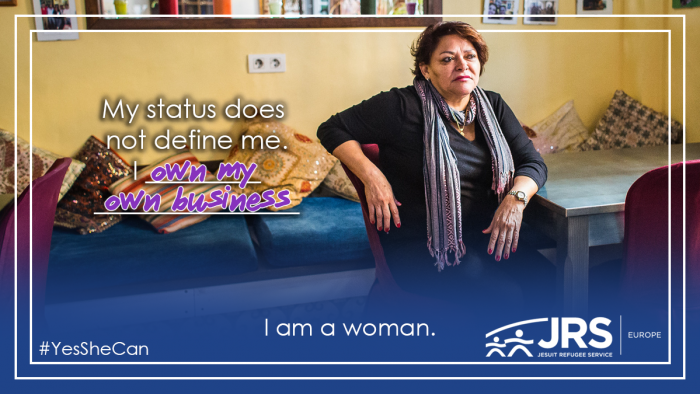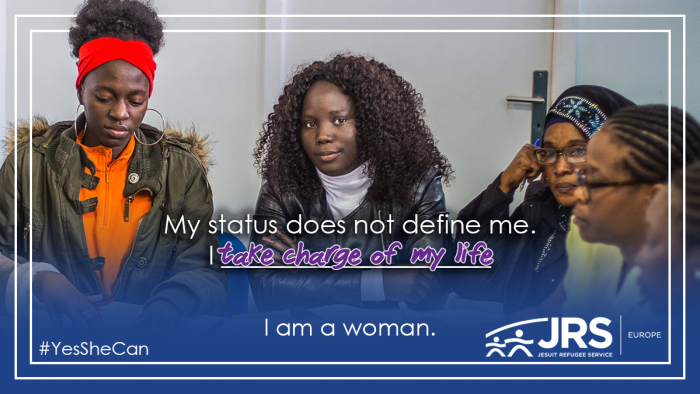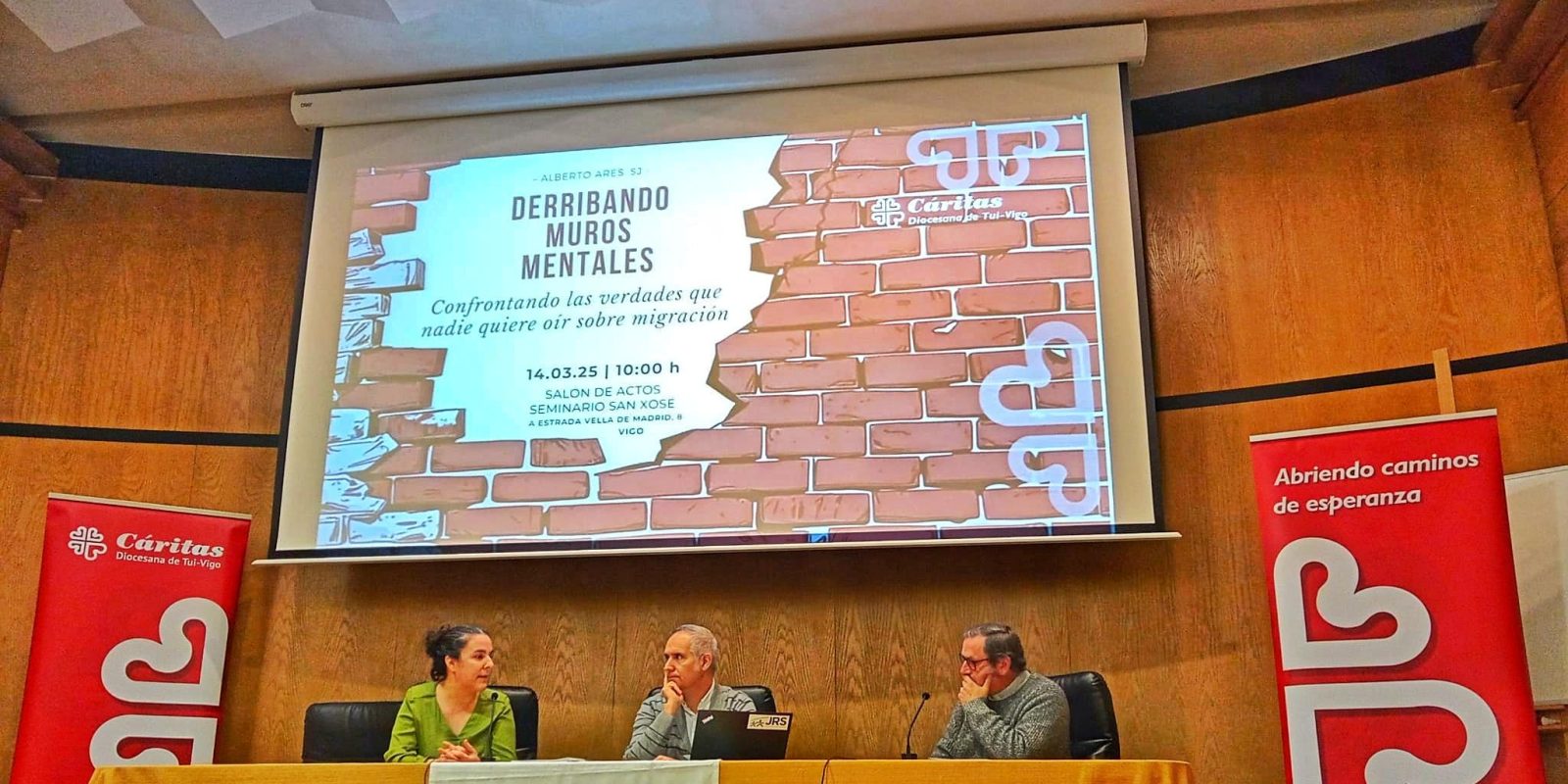Women’s Day 2021: the chance to succeed
08 March 2021
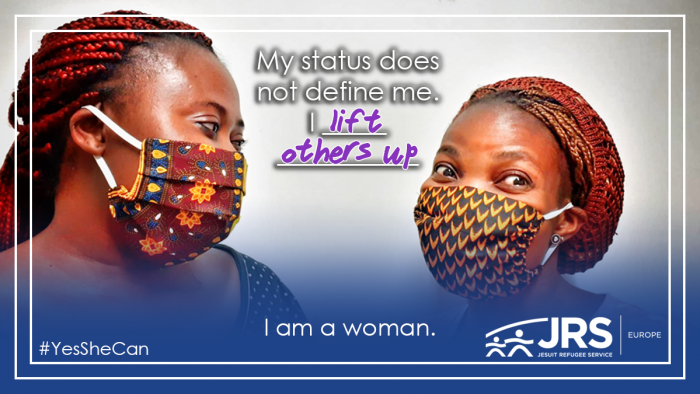
When speaking of employment and education gaps between sexes, one concept is often repeated: a nation which does not grant its women equal opportunities is cutting its potential achievements by half. Half a labour force, half political participation, half the cultural output. Migrant and refugee women have often faced these disparities in their home countries, and they might continue facing them once in Europe
According to recent statistics, almost half of forced migrants and refugees worldwide are female,1 and more than half of all international migrants in Europe are women.2 3 In addition, despite having similar rates of tertiary education to native-born European women and migrant men, migrant women are both less likely to be employed and more likely to be over-qualified for the job they do have.4
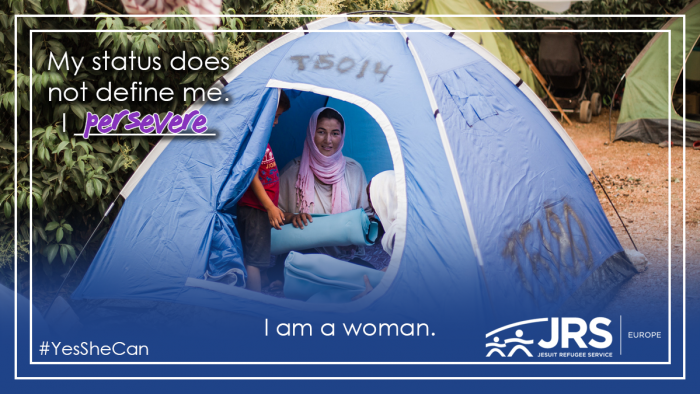
Various factors affect these gaps, but by and large, the root cause is a lack of integration support compared to their male peers. Out of 32 governments evaluated by a European Court of Auditors paper (27 EU member states plus four Belgian regions and Norway),5 only seven have policies in place that specifically address the integration of migrant women. This despite the fact that migrant and refugee women are subject to a number of circumstances that make it harder for them to integrate, with a few prominent examples being:
- Their skills take longer to be recognised than their male peers’, if they are recognised at all, as women from developing economies are more likely to have skills that are not certified by diplomas;
- They are often saddled with the extra responsibility of looking after children and elderly or vulnerable relatives, meaning they require either adapted schedules/teaching methods or caring assistance;
- They are often survivors of sexual assault and gender-based violence in their native country or during their migration, with at the very least 1 in 5 migrant and refugee women having experienced these traumas,6 and may require counselling and medical attention.
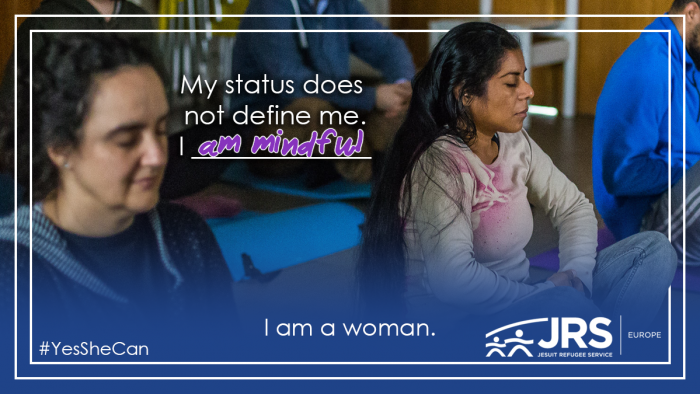
JRS recommendations for the EU and national governments
To ensure that women can develop their full potential and have full access to protection, the EU and its Members States should:
- Ensure dignified reception conditions across Europe. In particular:
-
- Allocate the necessary budget to guarantee adapted infrastructure
- Ensure the provision of the necessary information, interpretation services and legal assistance
- Guarantee asylum seekers a dignified standard of living, as foreseen by the EU Reception Conditions Directive
- Guarantee gender-sensitive reception conditions and procedures
- Train all relevant public officials – including, but not limited to, police officers, border guards, members of the coast guard, and civil servants – who, in the exercise of their duties, are likely to come into contact with asylum seekers and especially vulnerable women and girls;
- Establish alternatives to detention that are community-based;
- Give forced migrant women a platform to use their voice for issues that are important for them. Actively consult with and listen to forced migrants in deciding which initiatives should get priority and give them ownership on the activities put in place;
- Promote and invest in initiatives with a wide range of activities, such as cultural, spiritual and sports, in addition to focusing on integration on the labour market;
- Promote and invest in initiatives that are meant for broad target group, including both forced migrant women and women from other vulnerable social groups. Forced migrant women are not the only group suffering from social isolation and discrimination. Women living in poverty, homeless women, women in long-term unemployment, single mothers, etc. often face similar challenges. Investing in services that are only meant for forced migrants can exacerbate differences and result in a negative competition for scarce services among vulnerable group. This in turn can fuel racist feelings towards newcomers. Initiatives that are meant for a broader target group lead to mutual understanding of the shared difficulties and to empowerment to overcome them.
These adapted measures do not give migrant and refugee women an advantage over their male peers. Rather, it levels the playing field, giving them the same opportunities for success in their new home countries. Sexism is a societal problem that endures in Europe (and, indeed, all over the world), and part of fighting it is treating these women (and, indeed, all women) with equity.
